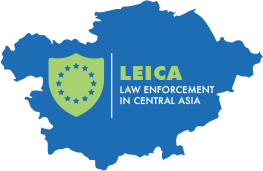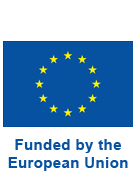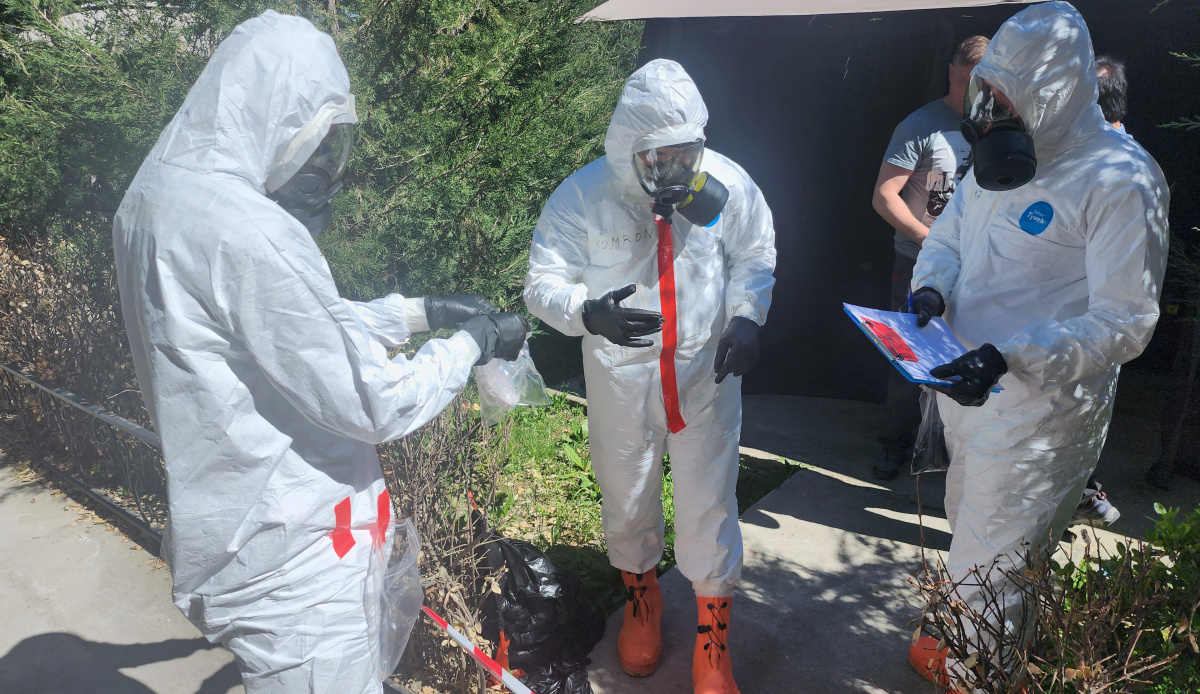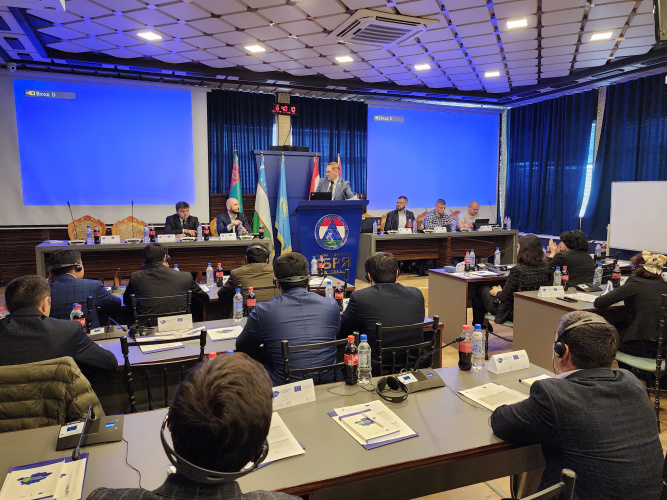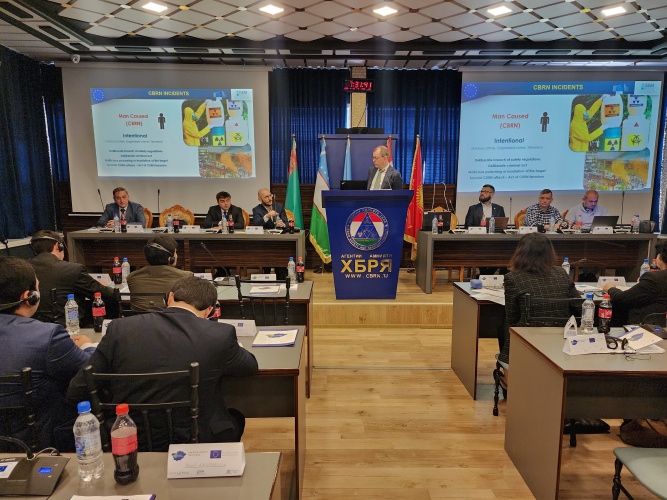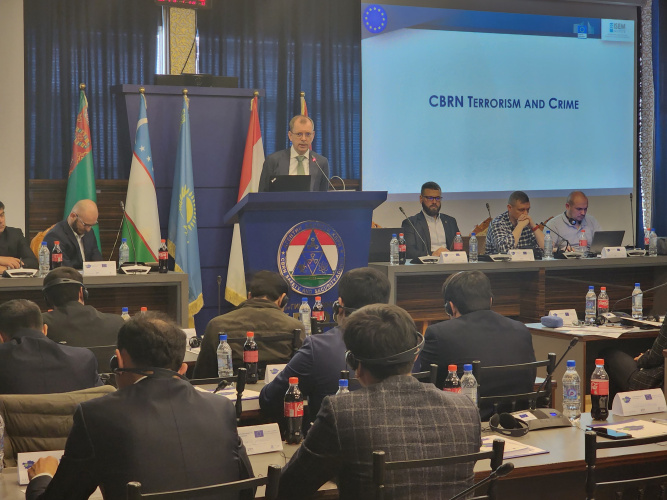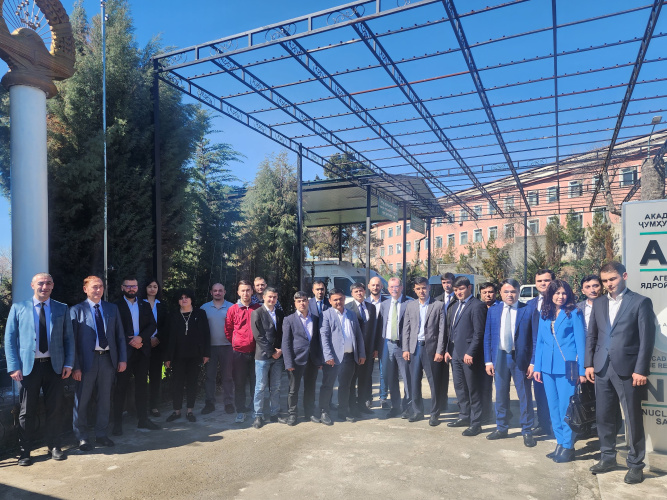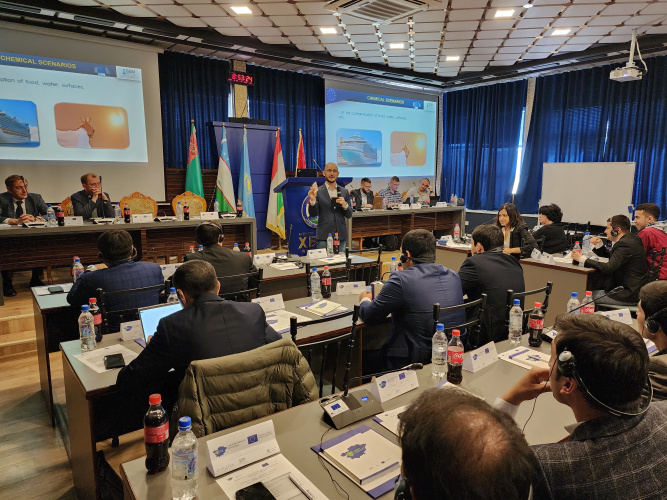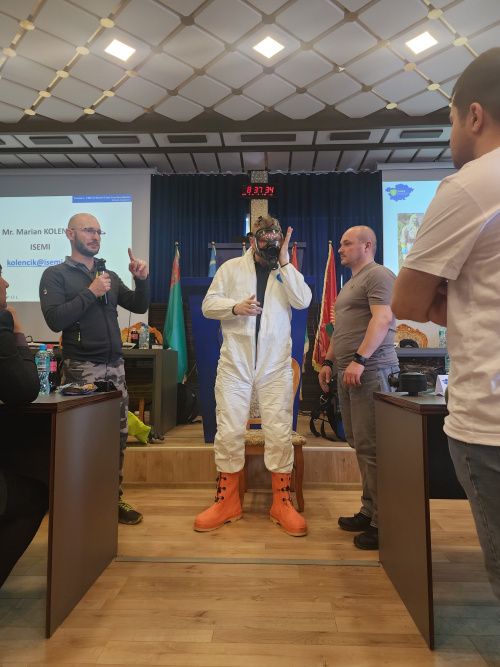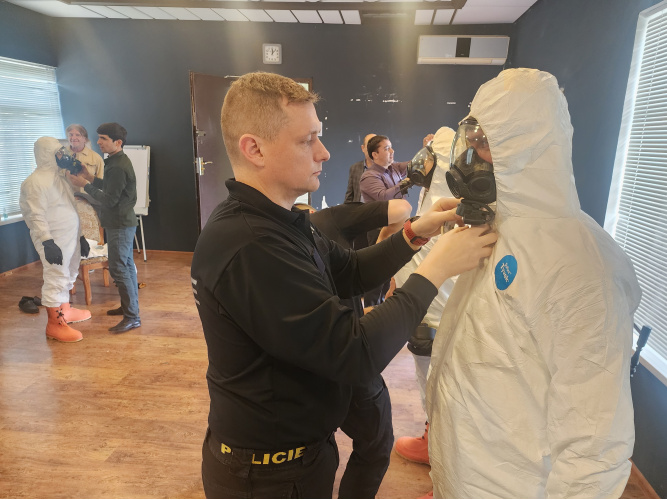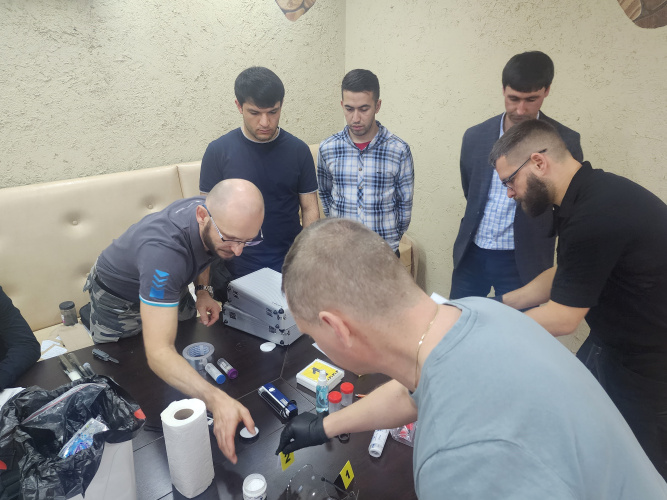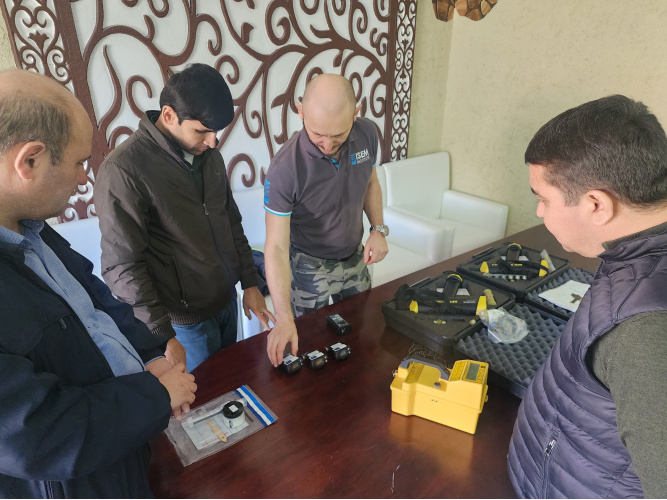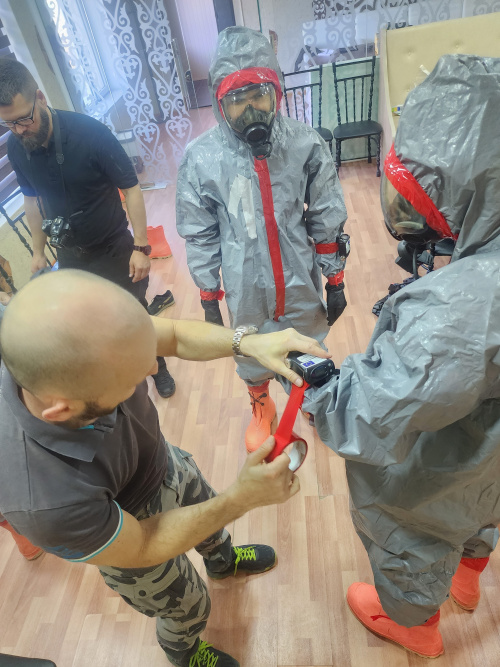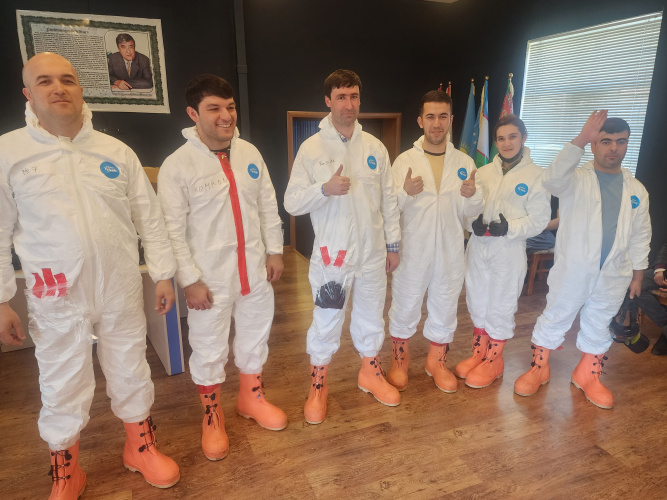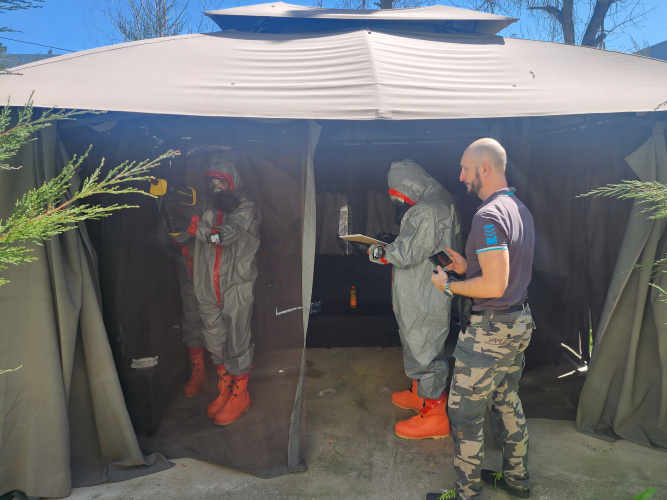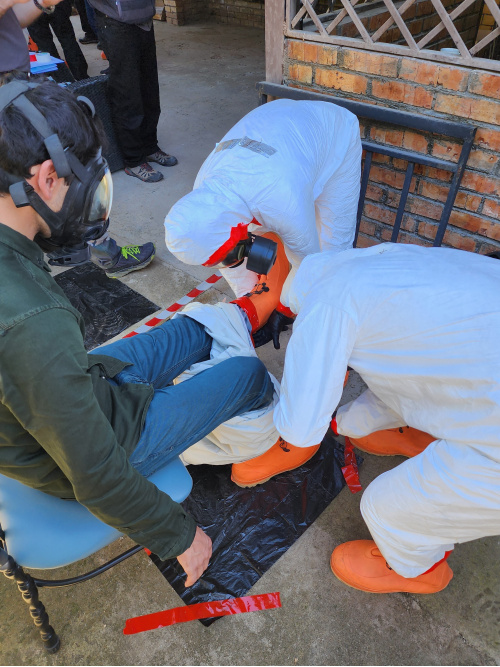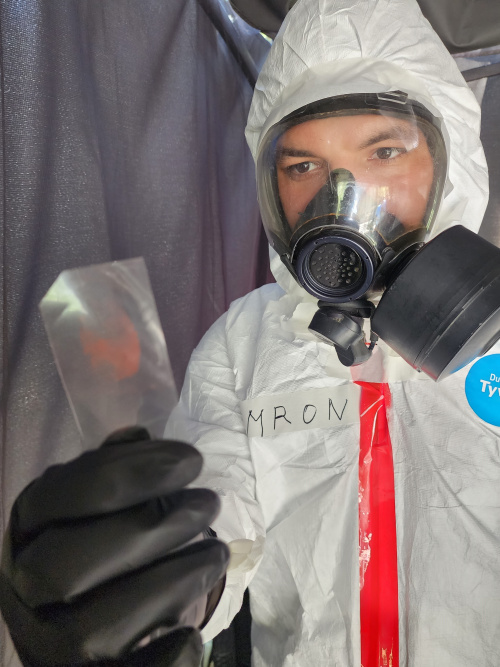20. 03. 2023
LEICA Conducted CBRN Threats Related Crime Scene Investigation Training in Dushanbe
Crime scene investigation under the conditions of contamination with the chemical, biological, radiological and nuclear (CBRN) agents is a complex process where agencies with different functions and responsibilities use to work together in close coordination, following strictly defined security procedures to protect the investigation team, the population as well as the environment, while at the same time efficiently collecting and analyzing evidence contaminated by CBRN agents, performing various types of traditional and CBRN-specific forensic analyses, resulting in providing the investigation with reliable and informative forensic report to be used in court.
The European Union-funded Law Enforcement In Central Asia (LEICA) project, in close cooperation with the EU CBRN Risk Mitigation Centres of Excellence (EU CBRN CoE) and the CBRN Safety and Security Agency (CBRN SSA) of Tajikistan, organized a five-day training on CBRN crime scene investigation for up to 18 Tajik officials from state security and police units, prosecutors, forensic crime scene experts, emergency service specialists, paramedics and state regulators.
This training was a combination of theory and practice, where each topic presented during the sessions is reinforced through hands-on exercises that simulate real-life case scenarios. Participants practiced health and safety procedures, personal protective equipment (PPE) of different levels. Crime scene management and interagency cooperation in investigating CBRN incidents, crime scene reconnaissance, detection and threat assessment of hazardous materials and booby traps. Seizure of evidence in accordance with international standards under conditions where CSI experts wear different levels of PPE.
Active service experts from Czech and Slovak CBRN response units shared best practices and methodologies used for CBRN-E related investigations in the EU.
The LEICA Director mentioned that terrorist threats are increasing, especially in the era of cyber technologies and drones, when new technologies can be used in terrorist attacks, including the use of CBRN materials. He stressed the importance of raising awareness of CBRN terrorist threats and building the capacity of local CBRN emergency response teams in Tajikistan, as well as in the Central Asian region as a whole.
In his opening speech, Jesper Pedersen, Deputy Head of Unit of the Global Threats and Challenges unit of the EU Service for Foreign Policy Instruments (FPI), welcomed the strong participation of Tajik services in this event and the very good collaboration with the CBRN Security and Safety Agency for organising the training. The EU has a well established collaboration with Tajikistan on CBRN related issues and look forward to continuing this also in the future. Mr Pedersen thanked also the LEICA team for the strong results being delivered through this programme.
The European Union funded project LEICA is managed by the EU Commission, through a consortium made up by French CIVIPOL and Slovak ISEMI, with the support of Interpol.
